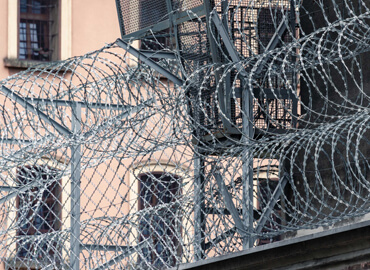Brief by the International Strategic Action network for Security — iSANS
On July 4, at its annual meeting in Vancouver, the Parliamentary Assembly of the Organization for Security and Cooperation in Europe (OSCE PA) adopted an annual Declaration and a set of Resolutions, addressed to the governments and parliaments of 57 OSCE participating States. In these documents, Belarus was featured quite prominently, trailing only Russia whose actions were in the centre of attention at the session, given Russia’s continued illegal aggression against Ukraine and its “clear, gross and uncorrected violations of its obligations under the Helsinki Principles and the Charter of the United Nations, particularly in the case of Ukraine but also beyond,” as stated in the Declaration. (OSCE Parliamentary Assembly Vancouver Declaration, para. 22.)
The growing concern of the international community about the situation in Belarus and actions of the Lukashenka regime in respect of the neighboring countries is visible in OSCE PA documents even in the numerical terms. The Vancouver documents mention Belarus 64 times while a year ago the set of documents adopted at the previous annual session of the Assembly in Birmingham included only 16 references to Belarus. Due to the Covid-19 pandemic, OSCE PA did not hold in-person annual sessions in 2020 and 2021, and no annual declarations were adopted at the time when the current wave of repression in Belarus unfolded. The documents of the session held in Luxemburg in 2019 before the pandemic did not mention Belarus even once.
Importantly, this year in Vancouver, the OSCE PA adopted a separate resolution on Belarus, in addition to repeatedly addressing the situation in the country in the Declaration and several thematic resolutions. A country-specific resolution on Belarus has not been adopted by the Assembly for more than a decade since OSCE PA reacted sharply in 2012 to the previous wave of political repression in the country. All this is a clear indication of the new level of attention paid by the international parliamentarians to Belarus now, at the time of unprecedented internal repression in the country and the complicity of the Lukashenka regime in the criminal aggression against Ukraine.
The provisions that refer to Belarus in OSCE PA Vancouver documents were immediately criticized by officials and pro-government media in Belarus and Russia as containing “unsubstantiated accusations”. The audience was reminded of the non-binding nature of the Declaration and Resolutions of the Assembly Assembly of Belarus and the Head of the delegation of Belarus to the OSCE PA Andrei Savinykh stated that the OSCE had been “converted by Western countries into a tool of information warfare and aggressive propaganda.”
Such a violent reaction indicates that, in spite their advisory nature, the Declaration and Resolutions have sufficient weight for both the international community and the governments of individual states when developing further strategies in respect of Belarus in almost all areas, taking into account a wide range of issues discussed at the OSCE platform.
In what contexts was Belarus discussed in OSCE PA Declaration and Resolutions this year?
Vancouver Declaration
The dominant context here is the role of Belarus as an accomplice and a co-aggressor in the Russian aggression against Ukraine, its support of Russia’s increasing threatening rhetoric of potential nuclear attacks by the deployment of Russian nuclear weapons in Belarus, and its role in the abduction of Ukrainians, including children, and their forcible removal to Russian Federation-occupied or Russian Federation territory. In addition to this, OSCE PA members expressed concern about the continued practice by Belarus of instrumentalizing illegal migration as a hybrid tool against neighbouring countries.
The continued human suffering caused by the Russia’s war against Ukraine, aided and abetted by Aliaksander Lukashenka and his illegitimate regime in Belarus, is considered by the OSCE PA in conjunction with the practice of imprisonment in Russia and Belarus of anti-war protesters and independent journalists reporting on the war. Declaration calls on Russia and Belarus to immediately stop human rights violations, on OSCE participating States to support political activists, human rights defenders, independent journalists and representatives of the opposition in Russia and Belarus. OSCE PA urged Russia to immediately and unconditionally cease its aggression and withdraw all its troops from the entire territory of Ukraine and demanded that Belarus immediately stops its facilitation of and support for the Russian Federation’s war of aggression against Ukraine. Importantly, the Assembly called for the establishment of a special international tribunal to bring all those responsible for the war of aggression against Ukraine to account, as well as to support all other mechanisms of accountability for war crimes and crimes against humanity committed in Ukraine.
Thematic Resolutions
Four thematic resolutions: on the Wagner Group’s Terroristic Nature and Actions, on Clarifying the Consequences of the Russian Federation’s Aggression against Ukraine in Terms of Adherence to OSCE Principles, on the Consequences of the Russian Federation’s Aggression against Ukraine with Regard to Women and Children, and on Penalizing the Deportation of Ukrainian Children, Ensuring their Return, and Prosecuting the Perpetrators, condemn the Belarusian government for far-reaching support of the Russian Federation’s aggression against Ukraine through military logistics to secure supply lines, making its territory and infrastructure available to the Russian army and paramilitary groups acting on behalf of the Russian State, including the preparations for the reception and deployment of the PMC Wagner (the resolution was written before it became clear whether it will actually arrive in Belarus and what will be the final arrangement regarding their deployment and activities), providing locations for the Russian armed forces to launch missiles and train troops, and taking part in the of forced transfer of Ukrainian children to Belarus and through the territory of Belarus to Russia. Importantly, the Assembly expressed its profound concern that Belarus “is thereby moving ever closer to the status of an active war party. ” (Resolution on clarifying the consequences of the Russian Federation’s aggression against Ukraine in terms of adherence to OSCE principles, para. 13.)
In a breakthrough development, the OSCE PA made an important recognition of the “soft annexation of Belarus” by Russia. This conclusion is made in the context of the Assembly pointing at “the violently imperial and colonial nature of the State of the Russian Federation”, which is manifested by the “unprovoked and illegal war against Ukraine, soft annexation of Belarus, occupation of Georgian territory and support for separatism in Moldova”, as well as “forceful, ongoing and deliberate subordination of indigenous and ethnic minority nations within the Russian Federation.” (Ibid., para 14.)
This assessment by the Assembly is particularly important as it demonstrates the growing awareness by the international community of the developments long highlighted by the Belarusian democratic forces, namely the continuing process of the erosion of sovereignty of Belarus and the growing void of power in the country.
Having effectively lost control in most areas of governance, Lukashenka and his government abandoned the fundamental function of preserving the independence of Belarus and lost the ability for sovereign decision-making. The regime acts as a puppet administration under the de-facto occupying state, following the criminal path of its masters and bearing its own responsibility for the crimes it commits. However, the OSCE PA did not follow the logic of acknowledging the “soft annexation” of Belarus by Russia further: it did not demand withdrawal of Russian troops from Belarus and did not call for a full deprivation of the Lukashenka regime of international recognition and the right to represent Belarus in international relations and for a complete isolation of the illegitimate and usurping regime.
As mentioned above, a separate Resolution on Support for a Democratic Belarus was adopted by the Assembly for the first time since more than a decade ago. In this document, the OSCE PA strongly condemns the deteriorating human rights situation in Belarus and the authorities’ brutal crackdown on civil liberties, freedom of association and independent media, as well as the continued repression of political opposition, civil society, trade unions and lawyers, in violation of OSCE commitments and international obligations. It notes the unprecedented scale and increasing number of arrests and cases of detention in reaction to peaceful protests and the beating and torturing of people in jail, the lack of an independent judicial system, as well as the situation of the relatives of political prisoners and Belarusians who have fled the country.
Major focus on systematic human rights violations in Belarus in the Declaration and thematic Resolutions shows that the OSCE PA, like other international organizations, is fully and in detail aware of the situation inside Belarus and understands the need to support democratic forces in their fight against the illegitimate repressive regime.
However, the fact that the OSCE PA did not assess gross, systematic, wide-spread and intentional human rights violations as crimes against humanity, as repeatedly called for by international and Belarusian civil society and legal experts, is disappointing. Such a statement could pave the way to a more effective use of international justice mechanisms.
Accountability gap needs more resolute actions
There is probably no practical point in going into details of what was demanded by the OSCE PA of Belarusian authorities ‒ calls to release political prisoners, stop sham trials, lift restrictions on peaceful assembly and freedom of the media, immediately stop human rights violations and hold effective investigation into allegations of abuse have been made repeatedly by various international bodies, including the European Parliament (resolution of 24 November 2022 “On the continuing repression of the democratic opposition and civil society in Belarus”), the United Nations High Commissioner for Human Rights (the report of 4 March 2022 “On the situation of human rights in Belarus in the run-up to the 2020 presidential election and in its aftermath”), the Special Rapporteur on the situation of human rights in Belarus (the Report to the United Nations General Assembly of 20 July 2022), to which the OSCE PA refers in its Resolutions.
It is more interesting to compare the language used in OSCE PA documents and its recommendations to OSCE participating States with regard to Belarus and Russia. The difference is impressive. OSCE PA members state that the Russian Federation “bears full responsibility under international human rights law and international humanitarian law” and “the international community is called to ensure there is no impunity for all the international crimes committed in and against Ukraine, including for war crimes and the crime of aggression, and that perpetrators are prosecuted before the appropriate court”. Meanwhile, with regard to Belarus parliaments in the OSCE region are called on to engage in “more systematic co-operation [with] Belarusian democratic forces”, “provide technical assistance to the democratic opposition”, “support political prisoners through NGOs”, “urge fellow parliamentarians to work for a universal periodic review of Belarus in the UN Human Rights Council”, “support further European Union individual and economic sanctions on the Belarusian regime”, “support independent news outlets”, “support the aspirations of Belarusian society to preserve its cultural and linguistic identity” and “prevent discrimination against Belarusian refugees.” (OSCE Parliamentary Assembly “Resolution on support of a democratic Belarus”, para. 10 (a-h).)
These are all important steps but what is missing is a clear call for specific actions by the international community to end impunity and ensure accountability for human rights violations and possible crimes against humanity committed in Belarus.
The only context where the OSCE PA documents speak about bringing representatives of the Lukashenka regime to justice is the war against Ukraine but the language in its recommendations in respect of Belarus is rather vague, compared to its position in respect of Russia. Where with regard to Russia the Assembly “urges OSCE participating States to make full use of all domestic and international instruments”, when it comes to Belarus, it calls to “continue to condemn the Lukashenka government’s involvement in the Russian Federation’s war against Ukraine and explore options for how it can be held accountable.” (Ibid., para. 10 (i).)
The only other occasion when the OSCE PA calls for accountability of the Minsk regime is also related to Russia’s and Belarus’ criminal actions during the war against Ukraine, specifically the forced deportation of Ukrainian children Russian Federation territory. Still, notwithstanding the Assembly’s own conclusion that this is an act of genocide as defined in Article II(e) of the 1948 Convention on the Prevention and Punishment of the Crime of Genocide, it does not call for justice to be administered over these crimes by any specific international legal mechanism, be it within the frame of the ICC or by establishing a Special Tribunal for Belarus, limiting itself to a general call for accountability. (Supra note 2, para. 144.)
A much more concrete and resolute step calling for the application of a particular international justice mechanism to hold the Lukashenka regime accountable was taken recently by the European Parliament’s Foreign Affairs Committee. On July 18, the Committee adopted a report on EU relations with Belarus in which it calls on the EU institutions and member states to take all necessary steps at the international level to enable the criminal prosecution of Belarusian political and military leaders responsible for crimes against humanity and genocide and directly on the ICC to consider issuing an arrest warrant for Aliaksandr Lukashenka. This report will serve as a basis for a resolution by the European Parliament which will be put to a vote at the September plenary session. Another recent example of a more proactive position in respect of the use of international justice mechanisms regarding Belarus is a resolution by the Parliamentary Assembly of the Council of Europe adopted on June 20, in which member States were encouraged to send referral letters to the Prosecutor of the International Criminal Court expressing their concern for the situation in Belarus and asking him to take an action.
Against the background of the clearly articulated position of the European Parliament and the PACE, the absence of recommendations by the OSCE PA to OSCE participating States to use the existing international legal mechanisms, such as the ICC, or to create a Special Tribunal for Belarus with the view to punish the perpetrators of the crimes committed there looks like a wasted opportunity.
It is now up to concerned OSCE participating States to fully implement good recommendations in OSCE PA Vancouver Declaration and Resolutions but, to go beyond this at the same time and exercise leadership in taking practical steps in the application of international justice mechanisms to ensure accountability of the Lukashenka regime for both the crimes committed in Belarus and those perpetrated during the aggression against Ukraine.











